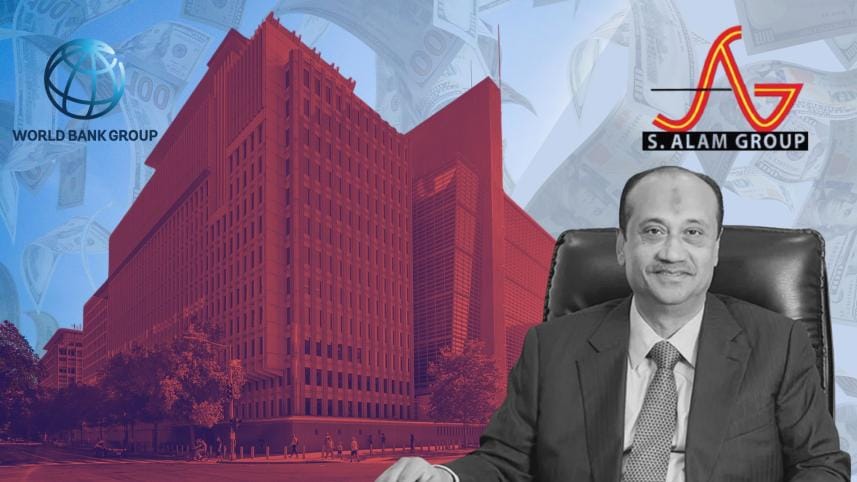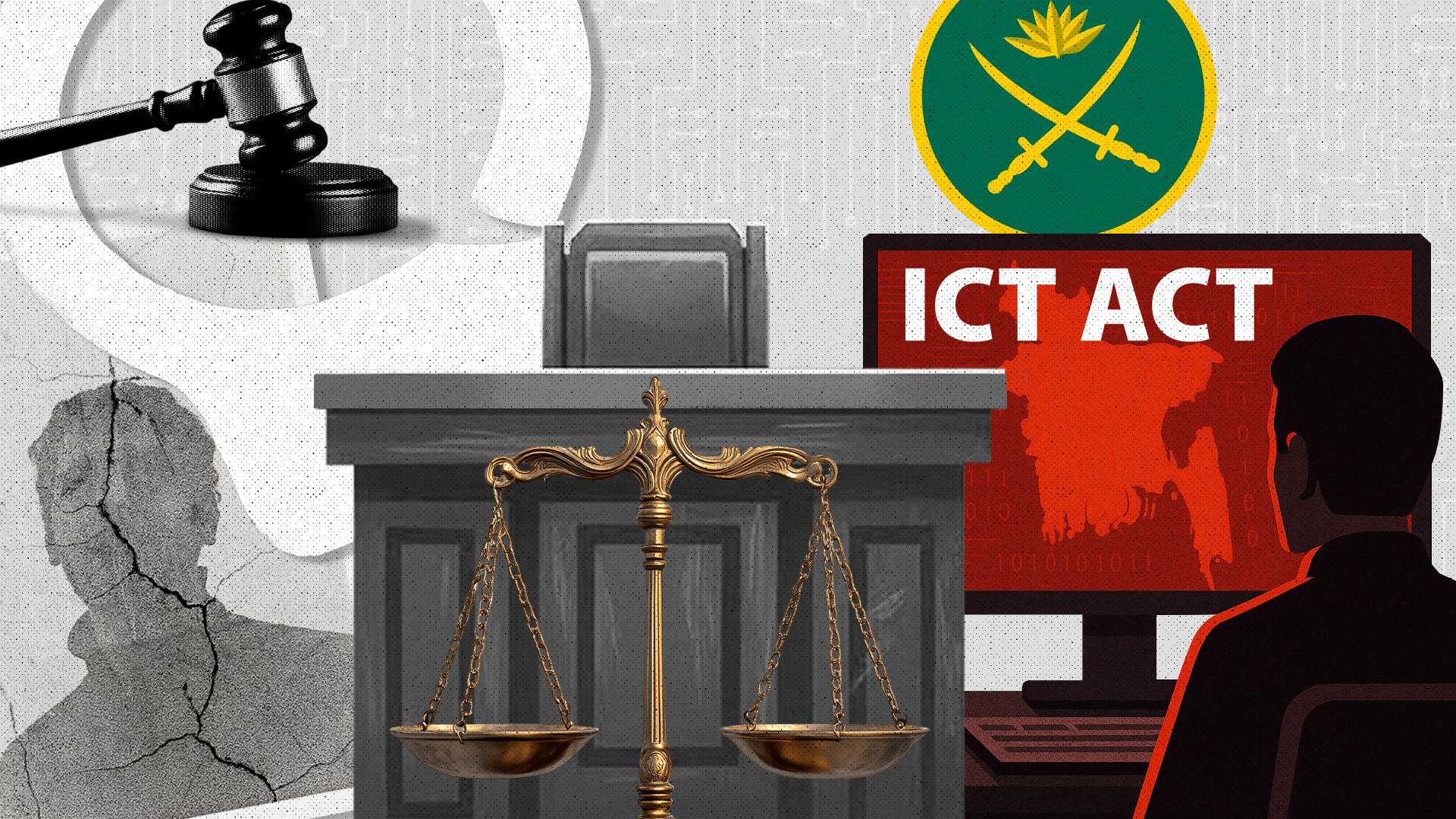When treaty shields collide with an asset recovery crusade

The S Alam Group owner, Mohammad Saiful Alam, has recently taken Bangladesh to the arbitration arm of the World Bank under the 2004 Bangladesh-Singapore bilateral investment treaty (BIT). The arbitration request lodged by his lawyers alleges that Bangladesh's asset recovery drive has cost his family business "hundreds of millions" of dollars following what he calls a "targeted campaign" of asset freezes, confiscations, and investigations by the interim government. This development cannot be taken lightly. It directly tests how an anti-corruption drive meets the hard law of investor protection, and the outcome may send powerful signals to investors.
The 2004 Bangladesh-Singapore treaty defines an investor as a citizen of a contracting state and offers guarantees including fair and equitable treatment, full protection and security, free transfer of capital, and compensation for expropriation. It also allows an investor to start a case at the World Bank's International Centre for Settlement of Investment Disputes (ICSID) after a six-month cooling-off period.
However, the ICSID Convention is quite strict about jurisdiction: it only hears a dispute between a state and a national of another state. A dual national of the respondent state (which is Bangladesh in this case) is barred if that nationality existed on the day the parties consented to arbitration or on the day ICSID registered the request. Article 25(2)(a) requires that a claimant be a national of the other contracting state on both dates and not also be a national of the respondent state on either. That rule shuts the door on a dual national of the respondent at both key moments.
Can claimants invoke the Bangladesh-Singapore BIT? Possibly yes on paper, but only if they truly were Singapore citizens and not Bangladeshi nationals on the legally relevant dates, and only if the assets in Bangladesh qualify as protected investments. Reports state that members of the S Alam family became Singaporean and renounced Bangladeshi nationality. If that holds, they would clear the nationality bar, provided the dates align with the Convention. When a claimant is or has been a national of the host state (Bangladesh in this case), ICSID lacks jurisdiction. The tribunal will test nationality with careful attention to timing, continuity, and evidence.
The next fight sits inside the investment treaty itself. The BIT protects investments in Bangladesh made by investors of Singapore. If most group assets were put in place when controllers were Bangladeshi nationals, Bangladesh can argue that those assets were not made by investors of Singapore and fall outside protection. So, expect a trench war over when assets were created, how they were funded, and who controlled them. Tribunals look past formalities to real ownership and timing. Bangladesh may also argue abuse of process. In the past, claims have been dismissed where an investor restructured their assets to gain treaty protection once a dispute was anticipated. The rejection of the Philip Morris Asia v. Australia claim—after the company restructured on paper to invoke a treaty while the plain packaging dispute was already underway—is a classic example. So, motive and timing are crucial.
On the merits, the S Alam family may argue that sweeping freezes and investigations, paired with public accusations and travel limits, amount to indirect expropriation and unfair and inequitable treatment. Bangladesh may reply that a clean-up drive to recover looted assets is a public-purpose measure, pursued under law with judicial oversight, and that no expropriation exists where ownership remains and due process is available. The treaty language on expropriation in the 2004 text is outdated, and does not grant automatic cover for anti-corruption work or other public-interest measures. Process and proportionality will decide this round.
Past experience offers sharp lessons. In Saipem v. Bangladesh, the ICSID found it had jurisdiction and later ruled that Bangladesh had breached the BIT after its courts invalidated an ICC award—a warning about judicial interference. In the Niko saga over gas blowouts, multiple rulings followed, and a later committee upheld an award against two state entities over gas deliveries. ICSID tribunals have often granted massive awards once a breach is found. The 2019 Tethyan Copper award against Pakistan—about $5.9 billion under an old treaty and almost equal to the IMF loan package approved weeks earlier—shows how broad provisions can expose fiscally weak states to heavy risk. Equally alarming is the $1.2 billion award against South Sudan in 2024, despite it being the poorest African nation. The lesson is plain: treaty language that provides extensive protection for investors can expose fragile states to serious fiscal danger.
The stakes are high here, both legally and politically. The interim government promised a reckoning after the ouster of the Awami League regime, and now a prominent target, closely linked with that regime, says the reckoning breaches a treaty and seeks neutral adjudication in Washington. That framing can chill investor sentiment if the response looks populist rather than lawful. It can also backfire at home if people conclude that a global tribunal is being used to sidestep accountability.
So, what should Dhaka do now? Treat the matter as a governance audit, not a media contest. Engage top-tier counsel in public international law and investor-state arbitration. Expertise in domestic law is also a necessity. Build a layered jurisdictional defence based on (i) the definition of investments made by (supposed) investors of Singapore, (ii) the nationality rule under the ICSID Convention, and (iii) a detailed timeline of the claimant's citizenship transfers, asset ownership, and control. Build a clean, factual record for each freeze and search with court documents, notices, and logs to demonstrate due process. Keep advisers and regulators off the microphone. Consider a without-prejudice dialogue that preserves investigations while reducing immediate business disruption. This is how states win hard cases.
There is also a policy task ahead. Bangladesh's early investment treaties largely resemble investor wish lists. The UNCTAD database reveals a broad and ageing network with partners such as Singapore, the United States, and the United Kingdom, offering extensive investor protections but lacking contemporary safeguards for public interest, environmental regulation, and anti-corruption measures. Reform, therefore, is long overdue. Bangladesh should consider drafting a model treaty with clear definitions, narrowed most-favoured-nation and fair and equitable treatment clauses, and an express right to regulate on matters of public importance. India moved in this direction with its 2016 Model BIT. Bangladesh can do the same while staying open to quality investment.
The bottom line is simple. The S Alam arbitration claim is about law and politics. If the family clears the jurisdiction hurdles, the state will be judged on process, not passion. If the response stays precise and disciplined, Bangladesh can defend its corruption clean-up with credibility and may even prevail. If it grandstands, it risks turning a domestic drive into an international own goal. Markets are watching, as are other treaty holders who can see that a text from 2004 still shapes risks in 2025. The smart play here is to litigate like an institution and reform like a state that wants to stay open to investment but closed to impunity.
Barrister Khan Khalid Adnan is advocate at the Supreme Court of Bangladesh, fellow at the Chartered Institute of Arbitrators, and head of the chamber at Khan Saifur Rahman and Associates in Dhaka.
Views expressed in this article are the author's own.
Follow The Daily Star Opinion on Facebook for the latest opinions, commentaries and analyses by experts and professionals. To contribute your article or letter to The Daily Star Opinion, see our guidelines for submission.




 For all latest news, follow The Daily Star's Google News channel.
For all latest news, follow The Daily Star's Google News channel. 

Comments